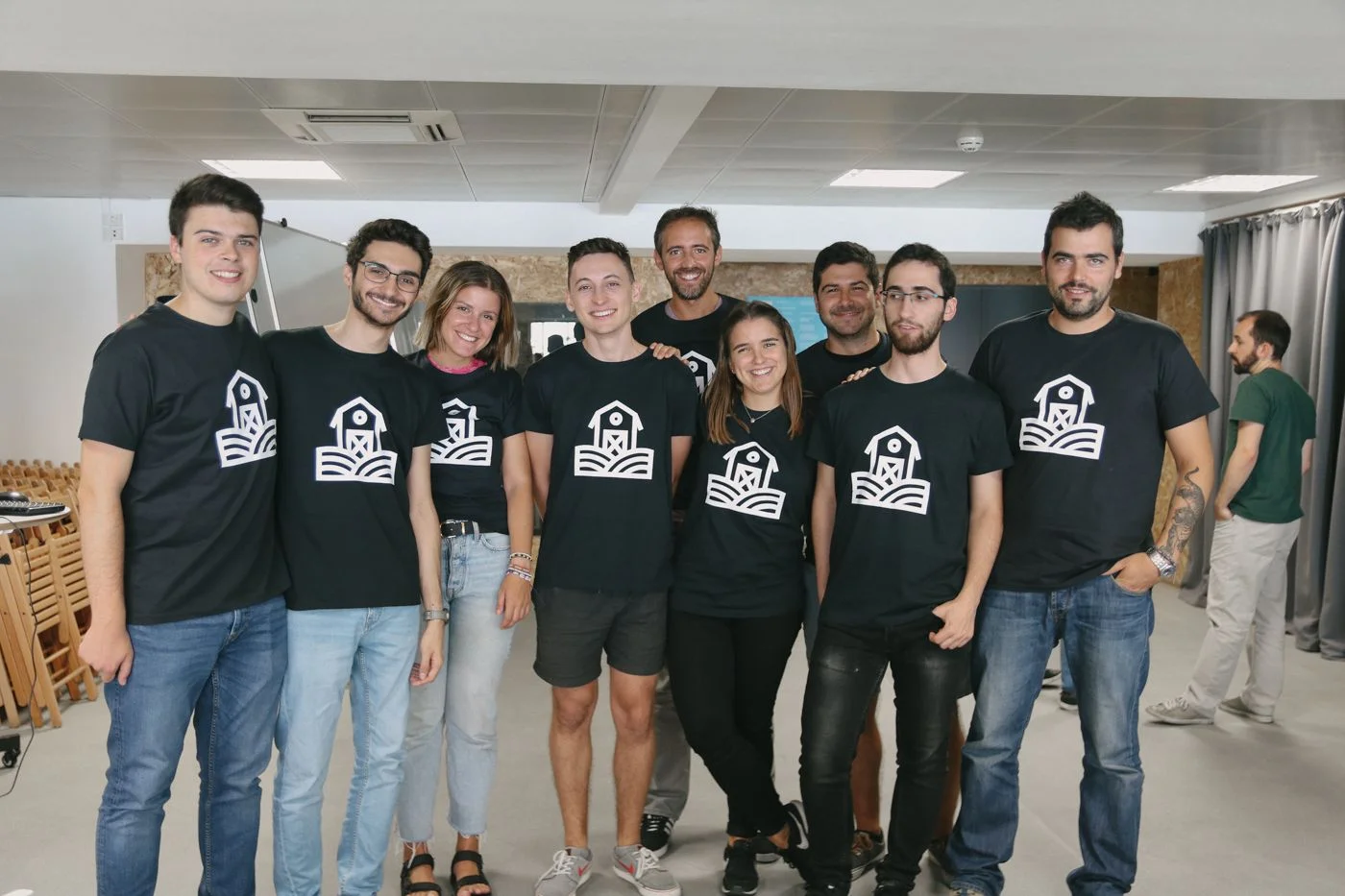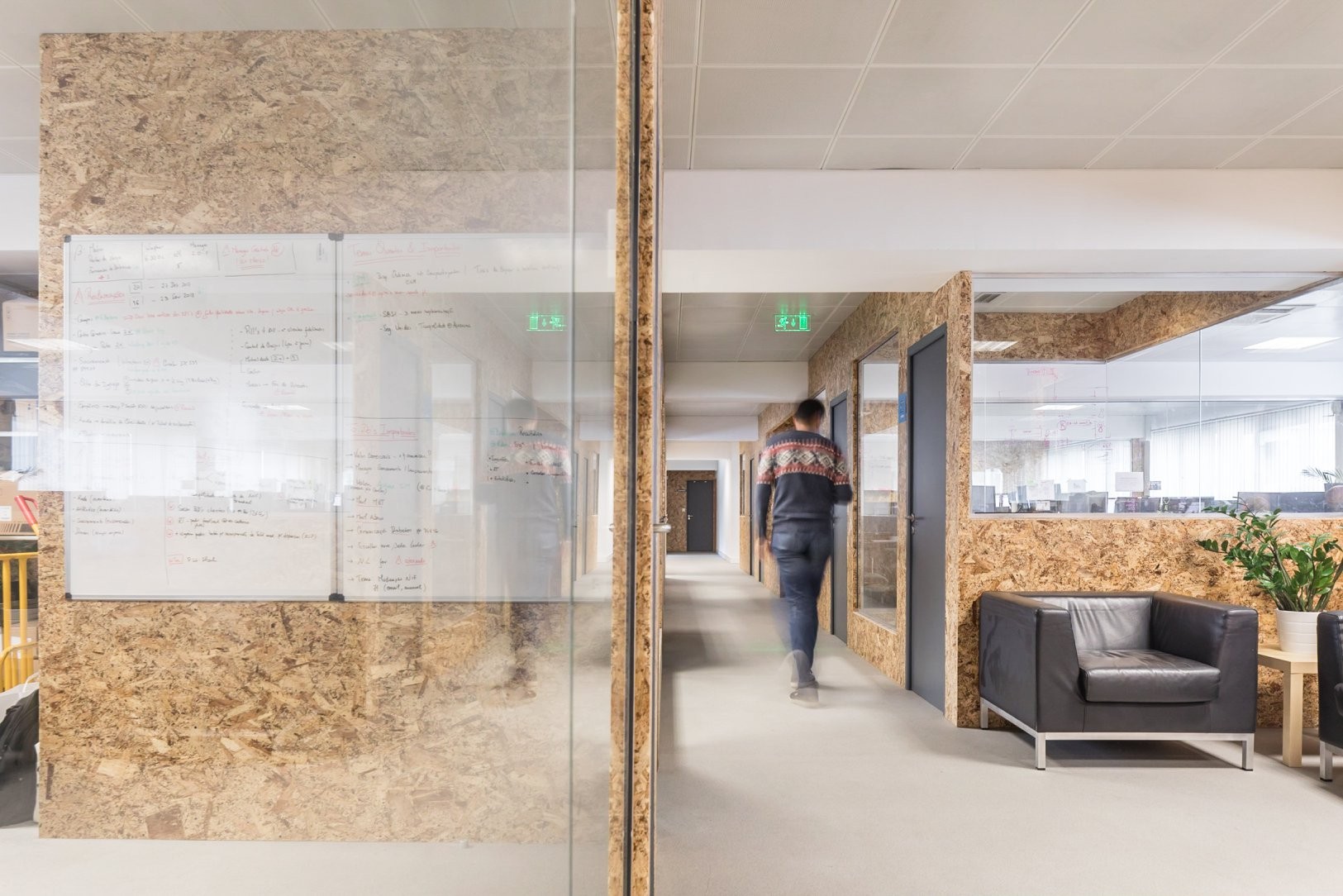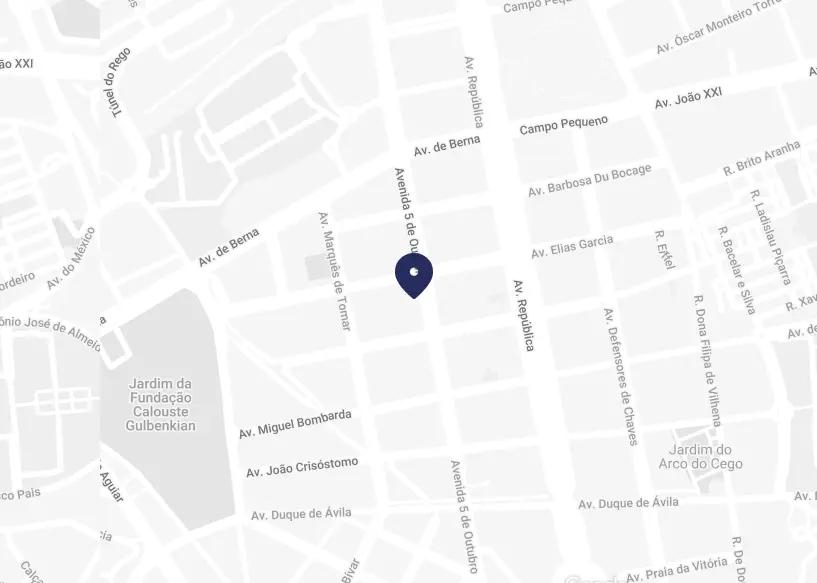The Summer Internship is one of the most cherished initiatives at Premium Minds. The excitement begins well before the students arrive, when we start choosing the project and the people on our team who will take part in it. Since the beginning, in 2013, we've found it more interesting to create a stand-alone project in which the students would have the opportunity to replicate a real team and build something of value.
This year, the challenge was to create a candidate management platform for our recruitment team to use. Two months after this experience reached its end, we interviewed the team about their unusual summer vacation. That conversation was not edited and corresponds exactly to what was said...
Now that you're back to your usual routine, what did you think of the internship? Was it worth spending the summer working?
Pedro (Software Engineer): Yes, it was very good. I had already thought of doing something different in the summer to gain work experience. The Premium internship was very good. In a relaxed atmosphere, we were able to build something from beginning to end, with consistently great support and a team spirit. And I think we were all proud of the end result. While we didn't really take in much of the summer, the final balance was very positive.
Oleksandr (Software Engineer): I have nothing bad to say, only good things. Basically, I was in second year and when I started here, I knew very little. I knew a few things but nothing much else. And when I left, after doing the project and everything we went through, I feel like I'm way ahead of my colleagues in almost everything in programming. I think the project made life a lot easier for me now in college and made me like my classes more now than I would otherwise. I was also very pleased with our program even though we didn't have a very user friendly UX (laughs), but it's functional.
"I think the project made life a lot easier for me now in college and made me like my classes more now than I would otherwise." (Oleksandr)
Maria (Product Manager): I was a little afraid of missing out on summer by working because if I didn't like it, it would really suck because I'm always between several things, so I don't get much rest. But I think it was worse when it ended and we got a little bit used to it—speaking for myself, at least—it was horrible to go back to college, it was really terrible. I'm finally gaining pace, but it's almost November. It was a shock.
The pace of being at work and getting back to college?
Maria: Yes, but also the motivation to do things because here we were all enjoying what we were doing and in college it's not quite like that, or at least not always. The goal was to have a professional experience that I had never had yet. But then I felt like, "I have one more year left to deal with" and it kind of sucked, but now I'm back to normal.
What were the differences between what you thought the everyday life of a Software House was and what you found here? Did you have any idea what a Software Engineer or Product Manager did every day?
Maria: I had no idea. Whatever it was would inevitably be new. If it were somewhere else I don't know... the atmosphere is pretty good... they got us used to it.
Oleksandr: I thought it would be more conservative. That people didn't have that freedom of, "Look, I feel like playing ping pong. I'm going to play ping pong. I feel like eating something. I'm going to eat something". I thought it was more like on television... if you were somewhat off-beat with respect to the company, that they'd bonk you on the head. It was completely the contrary, it was a quite different experience from what I was expecting. The culture puts the focus more on you and not on the managers. It's very cool.
Pedro: I also found it very interesting and realized that the Premium culture works. I feel more motivated to work here. There's more freedom, but it makes people work better, be more creative, less pressured and less stressed, which makes all the work flow so much better and that was certainly the part that surprised me a lot. When I told some people how things work here people thought it was weird. What I felt here is that developers have a lot more ownership of the project and feel that they can contribute more to it, so they feel more motivated and want to do more. It's not just someone asking to do X and the developers having to do it.
And what was the biggest challenge that you faced?
Oleksandr: Deployments!
Pedro: Yes. Because it's an area that we don't touch on in my course, it's not addressed. Sergio (Software Engineer) was the one who did that research at the beginning of the internship. We had less background on that part and since we also wanted the process to go forward and not just stand still while we tried to learn it, that was always a slightly more obscure aspect.
Oleksandr: And we also had the pressure to contribute a bug-free part of our own in the deployment for the customer to try it out...
Did you do many deployments throughout the internship?
Pedro: Two or three. We were supposed to do more. But sometimes when we would review the deployments they failed because, since we weren't comfortable doing it, we ended up leaving things to do later that we never did.
Maria: It didn't have much to do with deployments for me, although it was funny because I came here and I didn't know any terms whatsoever. The biggest challenge had more to do with my responsibilities of managing everyone's expectations and motivations, both the team's and Tiago's (Recruiting Manager), who was the client. Although it wasn't a very serious relationship, there was a time when we were a little behind and I had to tell Tiago that we weren't going to be able to come up with all the megalomaniacal ideas we had been talking about. He was the one who said, "No, no, you'll be able to do all of that and you can still add this and that." But he eventually accepted the simplest proposal and it was a steal because I was expecting him to ask for more (laughs). But he was happy with the outcome and that was good. Amazingly, the final presentation of the project to Premium was a huge challenge because we had to speak in public and everyone would be looking at our work. But I think it was good and I needed it because in college I didn't have much of that experience and I'll need to do that when I present my thesis.
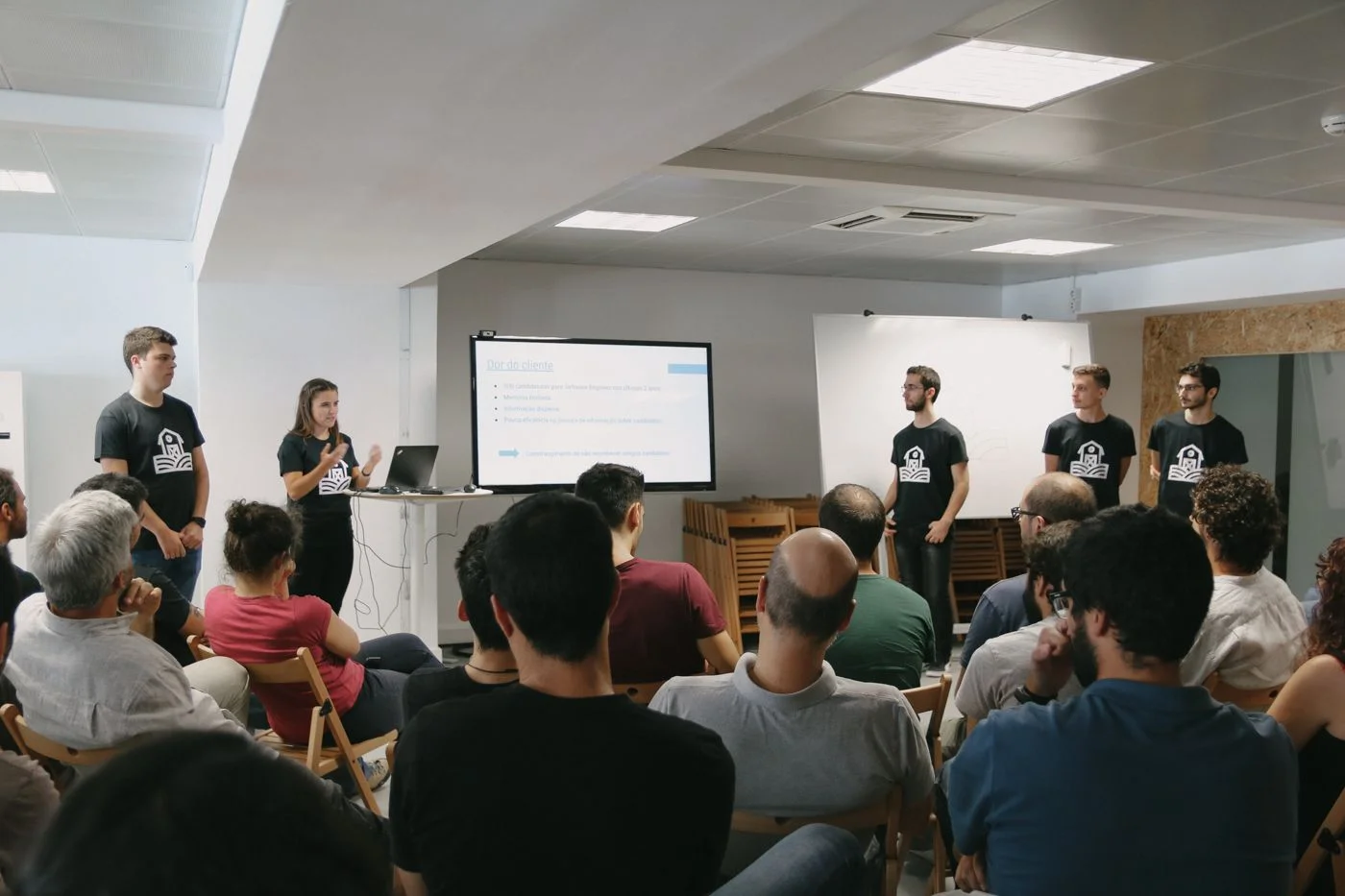
Maria, you were here two weeks before the rest of the team doing the inventory of requirements. When they arrived, did you have things established or were you still in panic mode?
Maria: I had pretty much everything established. I wasn't very organized by priority because I didn't really know what was easy or obvious... I had to talk with Gil (Software Architect) a lot because even my team didn't know many things, because they had never done them. I had to manage that part more with Gil to organize by importance and ease.
What was it like managing the desire to get the product ready and running well while having little time to do it? Two months of development goes by very fast...
Pedro: I think it was challenging, but it also made us learn more in less time. We felt like we had that deadline and we wanted to have it ready, so we were learning a lot of things. But we were going to apply it and see it applied in practice and that motivated me a lot more to study, to learn and to start applying that kind of stuff.
Oleksandr: Yes and, after all, after these two months and having set down the foundation, what a developer wants is to put more things into the software. So, although we didn't learn so much, that was a more creatively challenging part that was perhaps good to have in an internship as well.
Did you just do programming, or did you have to worry about infrastructure, testing, production versus quality environments, etc.?
Pedro: We only had one environment.
Oleksandr: We had a Docker. But we had to do tests. Whenever we were part of the program, we had to do tests to see if everything went well.
Pedro: We had to create the infrastructure in the beginning. We talked to Gil a lot and that was very good because it's also something that lacks a lot in college - creating a complete application, how the infrastructure works and the alternatives to creating an application from scratch. And that was very useful and allowed us to learn a lot early in the internship.
They had to apply things they hadn't learned about in college yet. How was that process of learning new things and having to apply them right away?
Oleksandr: It was interesting. I think it's a very important part of our progress because basically, by using these tools that we are teaching ourselves to use, and with the help that we had, those tools will be useful to us later in the future. That foundation will serve us a great deal from now on.
Pedro: I think it's much easier than in college because there's more support, there's a practical application and that's it. It's learning, applying, seeing things being built and not just reading, reading, reading. I think that makes the learning process easier. And Gil would help when we were stuck and that's always faster.
Maria: As you can imagine, coming from math there was nothing much to apply here. I had a management class, but anyway... What I've learned over the years is problem solving, but for mathematical problems. I never had much freedom to have more imagination in problem solving. Here, it was a real thing and it was going to be used and, although I didn't do the programming part, it was pretty cool to finally have the experience of learning things with a straightforward application. I think it's everyone's dream in college - to apply the knowledge right away. And it's quite rare for that to happen. In that sense, it was a spectacular experience.
"I think it's much easier than in college because there's more support, there's a practical application and that's it." (Pedro)
In terms of integration with the Premium team, I would say it went well... I, at least, always had the feeling that you felt at home...
Oleksandr: Yes! Absolutely! There was no way we couldn't integrate.
Pedro: Yes!
Maria: Yes! How did you not get any of the ice cream we gave out?
It was very sad...
Oleksandr: Post internship depression!
Maria: Did everyone go on vacation to get over it?
Everyone! The guys said, "No ice cream, I don't come to work, it's over!" (laughs)
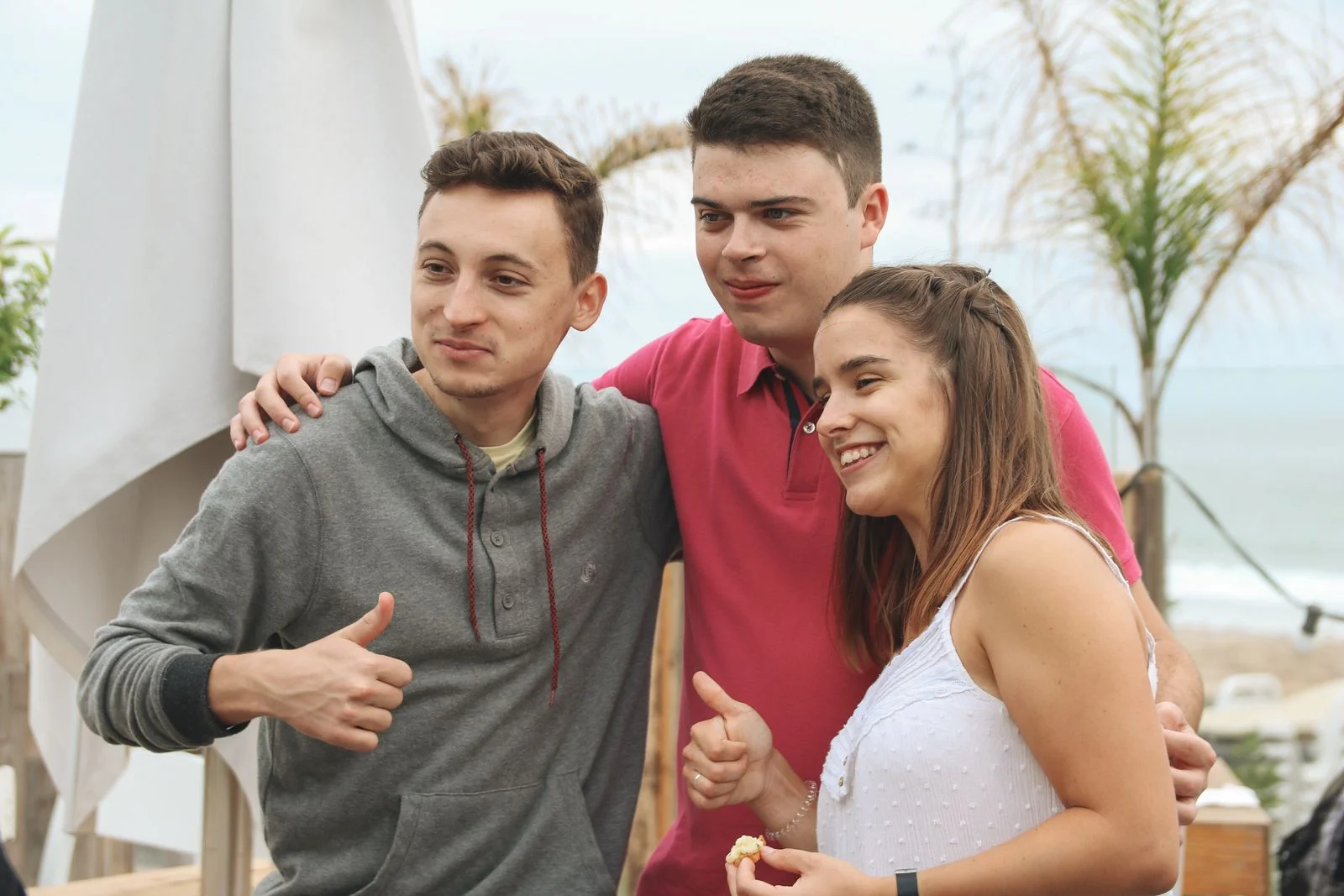
What's your overall review of this experience? Would you come back?
Maria: Not much to think about... overall, it's obviously positive, as we've been saying. I regret nothing about coming here. I would come back...I would have done some things better the next time around, but I think it really is a place that makes us feel at home, where there's a will to work and good motivation. So, I think it's a very good experience that any student would be lucky to have.
Pedro: It wasn't my first internship; I had already done another one. But besides being good to start realizing, as a student, what the working market in our area is, on the other hand there are other advantages because you start to understand where our knowledge can be applied. And, perhaps even in our course, we're learning, extracting knowledge differently, thinking about what we want to do in the future. Regarding the Premium experience, I have nothing to say: I really enjoyed it. I didn't know Premium before and it was a very interesting experience. I came here to talk to Tiago one day to get to know Premium and I realized a little, when I took the office tour, that the company might be a little different. Then when I started the internship, I realized that it was. And it's great to be a project of our own because sometimes in a big project we might take months to grasp the context. Here we were able to implement a project from scratch and ascertain many difficulties that you usually don't when you only get in half-way through.
Oleksandr: The internship had too many advantages to even consider the disadvantages. It was a super positive overall balance. I think my colleagues are sick of hearing about Premium. I must have already convinced several colleagues to try to do the internship here for the year because that was really cool. I enjoyed it very much and talked about the experience I had. They said it was an experience they would like to have before they start working because they want to go off course and start working, but at the same time they're afraid to go to work because they don't know what to do.
"I regret nothing about coming here. I would come back...I would have done some things better the next time around, but I think it really is a place that makes us feel at home, where there's a will to work and good motivation." (Maria)
The advantage there is that when you decide to accept a job... you can always quit it later, but it'll cost you more. But you take a first job offer a little unknowingly because you don't know what the everyday life is like...
Oleksandr: You don't know if it's a good offer, you don't know if the environment is cool or not, you don't know much. Now I get out of here and I can look at a job offer and realize, "This is cool, but..." I already have something to compare with.
Maria: I just have to add one thing. Last year I was going to do a summer internship and I didn't do it. There was even a company at the Pitch Bootcamp (IST event) that told me not to do a summer internship because it's too little time and you don't learn much, because interns would only do secretarial work. It was a good surprise to get here and for it to be completely the opposite. In little time we all learned a lot and we had a project of our own.
